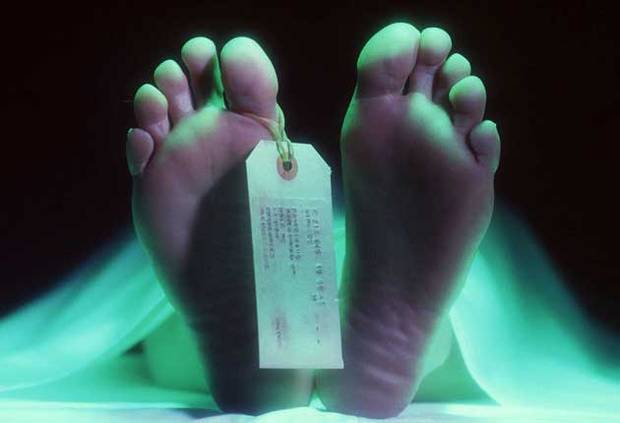- Home
- Medical news & Guidelines
- Anesthesiology
- Cardiology and CTVS
- Critical Care
- Dentistry
- Dermatology
- Diabetes and Endocrinology
- ENT
- Gastroenterology
- Medicine
- Nephrology
- Neurology
- Obstretics-Gynaecology
- Oncology
- Ophthalmology
- Orthopaedics
- Pediatrics-Neonatology
- Psychiatry
- Pulmonology
- Radiology
- Surgery
- Urology
- Laboratory Medicine
- Diet
- Nursing
- Paramedical
- Physiotherapy
- Health news
- Fact Check
- Bone Health Fact Check
- Brain Health Fact Check
- Cancer Related Fact Check
- Child Care Fact Check
- Dental and oral health fact check
- Diabetes and metabolic health fact check
- Diet and Nutrition Fact Check
- Eye and ENT Care Fact Check
- Fitness fact check
- Gut health fact check
- Heart health fact check
- Kidney health fact check
- Medical education fact check
- Men's health fact check
- Respiratory fact check
- Skin and hair care fact check
- Vaccine and Immunization fact check
- Women's health fact check
- AYUSH
- State News
- Andaman and Nicobar Islands
- Andhra Pradesh
- Arunachal Pradesh
- Assam
- Bihar
- Chandigarh
- Chattisgarh
- Dadra and Nagar Haveli
- Daman and Diu
- Delhi
- Goa
- Gujarat
- Haryana
- Himachal Pradesh
- Jammu & Kashmir
- Jharkhand
- Karnataka
- Kerala
- Ladakh
- Lakshadweep
- Madhya Pradesh
- Maharashtra
- Manipur
- Meghalaya
- Mizoram
- Nagaland
- Odisha
- Puducherry
- Punjab
- Rajasthan
- Sikkim
- Tamil Nadu
- Telangana
- Tripura
- Uttar Pradesh
- Uttrakhand
- West Bengal
- Medical Education
- Industry
Guidelines on cadaver donation submitted in Delhi High Court

New Delhi: The city government on Wednesday submitted in Delhi High Court the guidelines on cadaver donation in hospitals here.
The government submitted the guidelines before a division bench of Chief Justice G Rohini and Justice Jayant Nath, which posted the related plea for October 7.
The guidelines, framed by the health and family welfare department, detail the procedure to be followed for donation of a dead body for medical education and research purposes.
According to guidelines, an application for donation has to be made by a near relative to the head of the department of Anatomy of the concerned medical institution.
Also, all the government-run medical teaching institutions will have to maintain a register where any person can register for whole-body donation after death.
“The near relative could be either of the parents, grandparents, spouse, son, daughter or grandchild who would have to give the application (for cadaver donation) to the medical institution,” the guidelines said.
“Guidelines shall apply to all medical institutions in Delhi,” it said.
The court had earlier directed the government to draft guidelines regarding cadaver donation after taking note of a letter alleging that due to procedural delays, the body of a woman donor could not be utilised by the Organ Retrieval and Banking Organisation (ORBO) of the AIIMS.
The government submitted the guidelines before a division bench of Chief Justice G Rohini and Justice Jayant Nath, which posted the related plea for October 7.
The guidelines, framed by the health and family welfare department, detail the procedure to be followed for donation of a dead body for medical education and research purposes.
According to guidelines, an application for donation has to be made by a near relative to the head of the department of Anatomy of the concerned medical institution.
Also, all the government-run medical teaching institutions will have to maintain a register where any person can register for whole-body donation after death.
“The near relative could be either of the parents, grandparents, spouse, son, daughter or grandchild who would have to give the application (for cadaver donation) to the medical institution,” the guidelines said.
“Guidelines shall apply to all medical institutions in Delhi,” it said.
The court had earlier directed the government to draft guidelines regarding cadaver donation after taking note of a letter alleging that due to procedural delays, the body of a woman donor could not be utilised by the Organ Retrieval and Banking Organisation (ORBO) of the AIIMS.
Meghna A Singhania is the founder and Editor-in-Chief at Medical Dialogues. An Economics graduate from Delhi University and a post graduate from London School of Economics and Political Science, her key research interest lies in health economics, and policy making in health and medical sector in the country. She is a member of the Association of Healthcare Journalists. She can be contacted at meghna@medicaldialogues.in. Contact no. 011-43720751
Next Story


